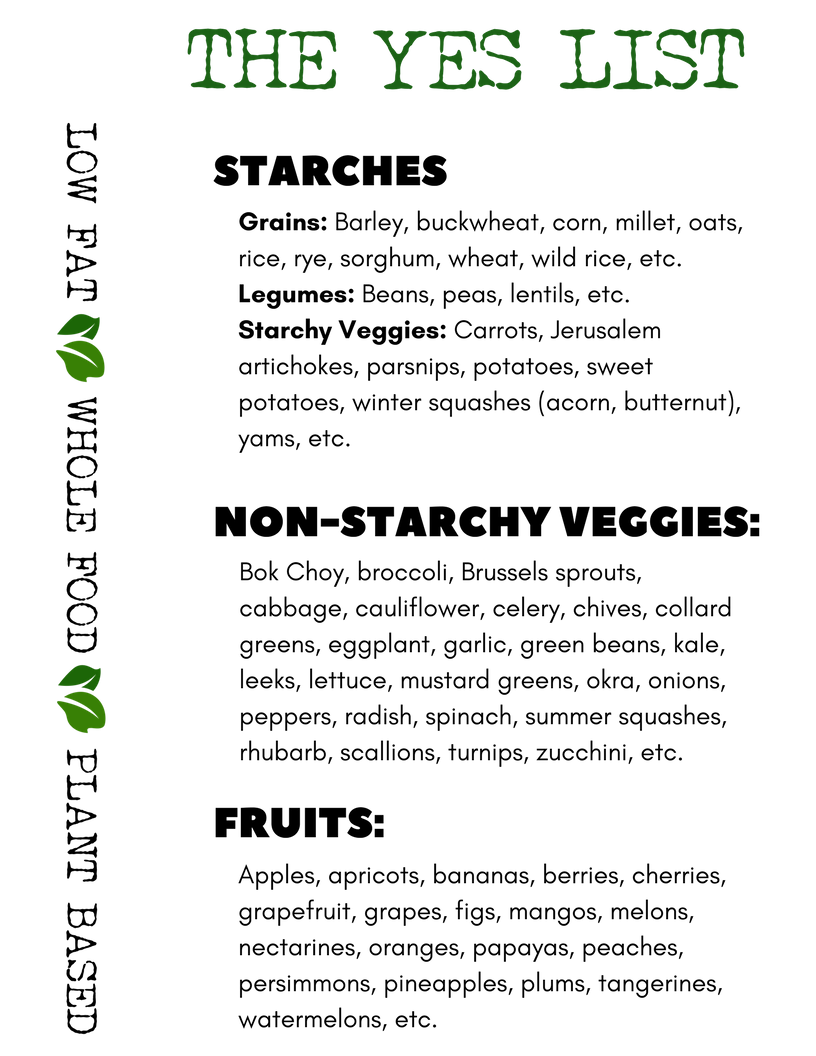The word “starch” conveys exactly what we are supposed to eat.
All Plants Contain Starch Plants synthesize and store carbohydrate in their roots, stems, leaves, flowers, and fruits. Some plant parts, like the seeds (grains and legumes), roots, and tubers concentrate very large amounts of starch in the form of stored energy. This fuel will serve to sustain the plant’s parts during the winter and provide the energy for reproduction during the next growing season. Starch supports the germination of grains (rice and corn) and legumes (beans), and the sprouting of tubers (white potatoes) and roots (sweet potatoes) in the springtime.
All Plants Contain Starch Plants synthesize and store carbohydrate in their roots, stems, leaves, flowers, and fruits. Some plant parts, like the seeds (grains and legumes), roots, and tubers concentrate very large amounts of starch in the form of stored energy. This fuel will serve to sustain the plant’s parts during the winter and provide the energy for reproduction during the next growing season. Starch supports the germination of grains (rice and corn) and legumes (beans), and the sprouting of tubers (white potatoes) and roots (sweet potatoes) in the springtime.
Starches:
- Grains: Barley, buckwheat, corn, millet, oats, rice, rye, sorghum, wheat, wild rice, etc.
- Legumes: Beans, peas, lentils, etc.
- Starchy Vegetables: Carrots, Jerusalem artichokes, parsnips, potatoes, salsify, sweet potatoes, winter squashes (acorn, butternut, Hubbard, banana), yams, etc.
- Bok Choy, broccoli, Brussels sprouts, cabbage, cauliflower, celery, chives, collard greens, eggplant, garlic, green beans, kale, leeks, lettuce, mustard greens, okra, onions, peppers, radish, spinach, summer squashes, rhubarb, scallions, turnips, zucchini, etc.
- Apples, apricots, bananas, berries, cherries, grapefruit, grapes, figs, loquats, mangos, melons, nectarines, oranges, papayas, peaches persimmons, pineapples, plums, tangerines, watermelons, etc.
THE PROGRAM:
- Center each meal around a starch, eating all you like: whole grains, potatoes, yams, winter squash, legumes. Minimize processed forms, and choose whole grain forms (pasta, bread, etc.). Many eat potatoes daily, which has plenty of vitamin C and protein.
- Eat plenty of fresh raw or steamed colorful vegies and fruits. Green leafies like kale are supply lots of calcium as well as protein. Greens pack more nutrition than fruits. Minimize dried fruits and fruit juices.
- Eliminate: all animal foods, processed and refined foods, and all added oils and fats. Eat limited amounts of nuts, seeds, coconuts & avocados as occasional treats.
- Avoid processed soy products, like soy protein isolate, soy burgers, fake soy meats or lecithin. A limited amount of tofu, soymilk, edamame and tempeh are OK. Organic only.
- Condiments. Sauces and Dressings should be low fat, can have some salt and sugar, Substitute flavorful herbs, dashes of lemon, tamari, nutritional yeast, tahini, ketchup, salsa, tofu mayo or sour cream, etc. A dash of lemon juice can be a good salad dressing. A little added salt and sugar is OK and goes the furthest if sprinkled on top, not mixed in.
- Supplement with Vit. B12 as methylcobalamin, an avg. of 5 mcg./day or 500/week. Try to get Vit. D from sun; otherwise limit to 200Iu/day. Isolated vitamins are not recommended by McDougall, based on recent studies finding harm. Whole foods best. Brenda Davis, RD, advises 600Iu D, 150 mcg iodine, and 200 mg Omega 3 2-3x/wk.











